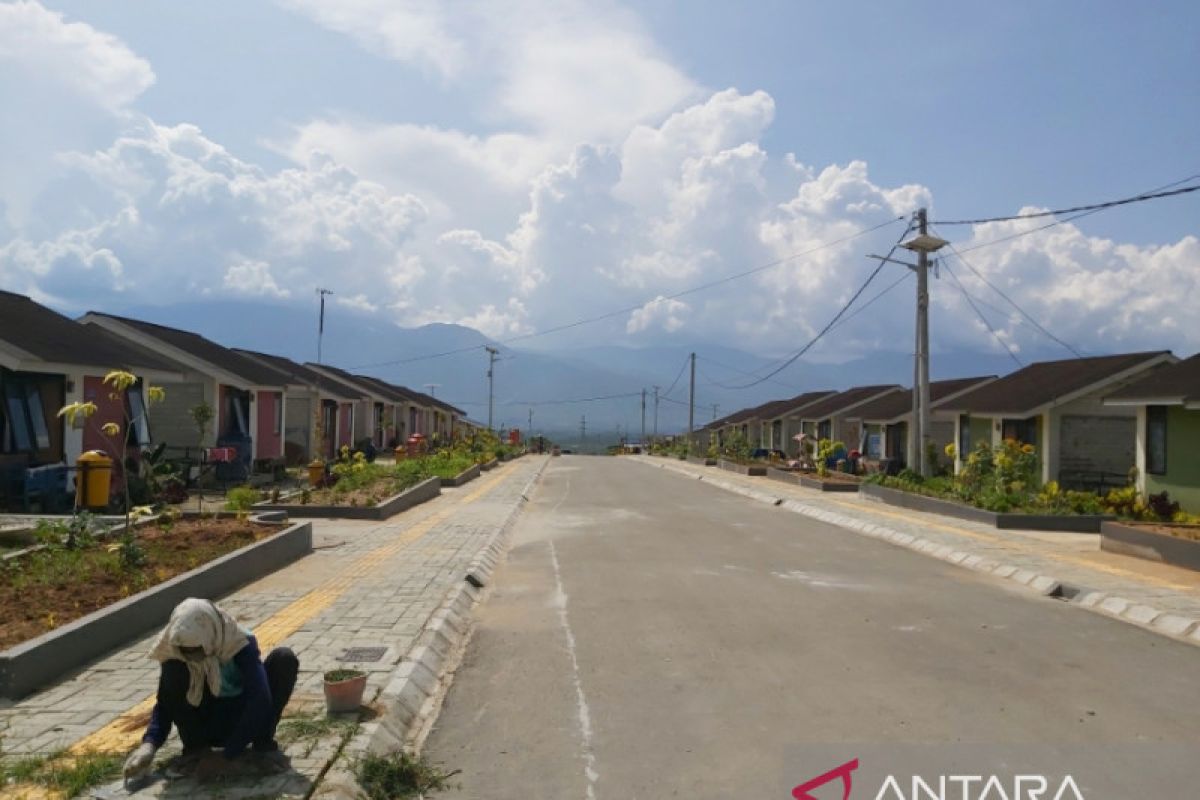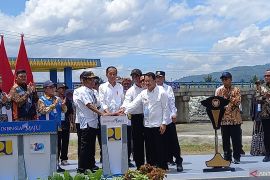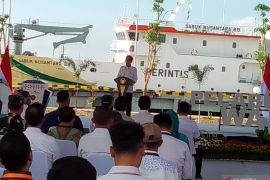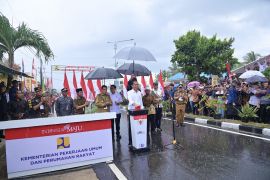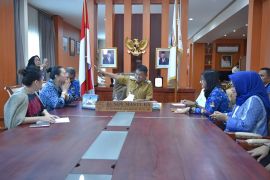According to data from the National Disaster Mitigation Agency (BNPB) on February 5, 2019, the earthquake caused damage to seven bridges, 362 business establishments, 265 schools, five hotels, 78 offices, 327 places of worship, and a total of 68,451 houses in Palu City and the surrounding districts of Donggala, Sigi, and Parigi Moutong.
Out of the damaged houses, some 11,788 homes were located in areas considered unsafe, which rendered house reconstruction at that area unfeasible and compelled the government to relocate residents to safer areas instead.
The provincial authority had designated several areas considered safe for habitation as relocation destinations. Those areas comprised 481.63 hectares of land in the sub-districts of Tondo and Talise in Palu City, 362 hectares of land in the villages of Pombewe and Olobuju in Sigi District, and 79.3 hectares of land in Palu City.
The government, through the public works and public housing minister, then constructed a total of 8,788 new permanent housing units for residents that had lost their homes, while numerous humanitarian organizations had also contributed to the effort by constructing another three thousand housing units.
Related news: Promptly resolve house rehabilitation issues in Central Sulawesi: DPD
Moving to a new house
Following the completion of construction work, the authority handed over the key of the new house to residents that earlier lived in temporary dwellings after the earthquake.
With the key to their new home in their hands, residents can bid farewell to their temporary dwellings constructed of plywood with common kitchens, toilets, and bathrooms that were inadequate and seldom clean.
“Praise be to God, we are thankful for the government’s attentiveness to our livelihood by awarding a house in the Pombewe area. Life in temporary dwellings is miserable because living with other families is too crowded for me,” Indrawati, who recently received her new home, remarked.
Indrawati hails from Mpanau Village in Sigi District. Her house was destroyed during the massive liquefaction that destroyed her village. The government then decided to relocate her to Pombewe, as her village was deemed unsafe.
Indrawati received a new home in a fully-furnished condition, with chairs, tables, beds, and a stove complete with a gas cylinder that was readily available. She also received the land certificate for her new home earlier in 2020.
She noted that facilities in the Pombewe permanent dwelling complex had exceeded her expectations despite some other facilities currently being under completion.
Electric connection, drainage system, and clean water facilities installed at three locations have been sufficient to boost the residents’ livelihood, she remarked while adding that the road to the complex had been paved, with street lights at the complex working properly at night.
The construction of other public facilities, such as a playground, public hall, health facilities, and community market are currently under progress, with a mosque constructed within the complex nearing completion, she added.
The Pombewe permanent dwelling complex is strategically located, with public places, such as schools, hospitals, city market, and government offices, within reach of the complex.
Apart from the Tora Belo Regional General Hospital and local public health centers operational round the clock, schools of various levels are located within 500 meters to up to 4.3 kilometers from the complex and the Ranggulalo Market located 4.2 kilometers from the complex that could be reached with ease by the Pombewe complex residents.
With the Pombewe Village Office and Biromaru Sub-district Office reachable within 15 to 20 minutes, the journey to the Palu City centre and municipal administration offices takes less than an hour of travel.
Living in a new neighborhood
Indrawati breathed a sigh of relief that she and other refugees were finally living in new houses that they had waited for since years. Indrawati was glad to know that she would be reunited with neighbors of her old village, as their houses would be located in proximity to hers.
Living in the new complex, Indrawati continues to encourage her neighbors to maintain their neighborhood to make the complex a better place to stay, including by persuading her neighbors to cultivate plants, such as vegetables, medicinal varieties, and fruits, that would provide shade for them for several years.
“The intense heat during the noon is scorching. Hence, I decided to cultivate plants in front of my house to provide shade and reduce the heat,” she remarked.
To maintain harmonious relations among neighbors, the residents of Pombewe complex concurred on resolving conflicts among themselves through consensus.
“If a rumor about a community member is circulating, and particularly, when the rumor tends to be a slander, we would go to the first person, who utters the rumor to clarify the information,” Indrawati stated.
On account of her capability and outspokenness, the neighbors have trusted Indrawati with mediating conflicts in pursuit of resolutions in the complex and to represent the neighbourhood in seeking redress on facility issues in dealing with the authority.
“Some residents are not too confident to inquire about their matter on their own, and sometimes, they encourage me to speak on their behalf to the authority,” she noted.
Similar to Indrawati, Asrida also received her new home after her house in Balaroa Sub-district, Palu City, was destroyed in the liquefaction that occurred in several areas after the earthquake struck.
After living for two years without income in a temporary dwelling in Lolu Village, Sigi District, Asrida quickly set up a small stall days after moving into her new home.
“I had no income while residing in the temporary dwelling because I spent my days only eating and sleeping, and the dwelling is also uncomfortable and hot,” Asrida remarked.
In a fortunate turn of events, Asrida met her current husband, Asbir, while living at the temporary dwelling. Asbir, a native of Sigi District, is a construction worker hired to construct the Pombewe housing complex, she remarked.
In the initial months of moving into the Pombewe complex, Asrida and her neighbors encountered a threat of theft of construction material that compelled the neighborhood to organize a voluntary security group to patrol the complex on a fortnightly basis.
“My husband and other neighbors voluntarily join the security patrol because when the patrol stops, the thief became active again,” Asrida recounted her experience of tackling the security threat, which gradually stopped, with more residents moving into the Pombewe complex.
Despite a continued commitment to providing more permanent dwellings for residents, the COVID-19 pandemic has significantly hindered development. Of the total 605 planned units, work on only 400 units had been completed, with fewer units having been handed over to residents.
Vice President Ma’ruf Amin, during his work visit to Palu City earlier this year, had also instructed the regional authority to promptly complete the construction of permanent dwellings and urged them to be responsive in addressing issues that might hinder progress.
Enhancing the disaster victims' quality of life by prompt housing provisions must remain a priority of the regional authority since disaster victims must not be left waiting for any longer after having lived without a permanent home for almost four years.
Related news: Central Sulawesi's earthquake triggers mass movement to higher ground
Related news: Sigi's sunday market reopened after being destroyed by 2018 earthquake
Translator: M Arshandi, Nabil Ihsan
Editor: Sri Haryati
Copyright © ANTARA 2022
